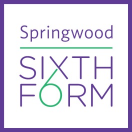Criminology
| "The deviant and the conformist...are creatures of the same culture, inventions of the same imagination.” |
|---|
Criminology is one of the subjects within the “social sciences” at Springwood. The main objective is to understand and explain the role of criminal behavior in society. Criminology allows students to explore a variety of topics such as Changing Awareness of Crime, Criminological Theories including
Psychological, Sociological and Biological explanations for offending, Crime Scene Analysis and the Role of the Courtroom, Dealing with Offending Behaviour, and Punishment.
The course will explore the origins of crime, social reactions to crime, and how crime is dealt with. It will investigate the role of each individual from offender to victim, forensic scientist to jury. It is hoped that the study of Criminology will not only be of value to those who intend to take it further at degree level, but will enable students to develop useful skills for many other areas of study.
Students will leave the course with a detailed understanding of offending behavior and the criminal justice system. This will enable students to further understand the role of crime and deviance in society by giving them opportunity to question their traditional beliefs and see behind the statistics.
The course will ensure that students are developing critical thinking skills through discussion,
evaluation and analysis. These are skills held in high esteem by universities and employers alike.
Entry Requirement
Grade 4 in Maths and English Lang plus at least 3 other GCSEs at grade 5
Subject Specific Requirements
Grade 4 in History, RE, Sociology or other relevant Humanities subject.
Assessment
Criminology will use a mixture of formal learning methods (e.g. note taking and essay writing) and less formal methods such as debating. Students will be expected to regularly write at length and present research findings to both teachers and students. We actively encourage Criminology students to watch the news and social/psychological documentaries to both consolidate and extend their learning, and on occasion such tasks may be set for homework.
Students will be encouraged to undertake additional reading tasks to enhance their knowledge and to improve their analysis and evaluation skills. Students will apply what they learn in the classroom to real life events to help them appreciate the real life value of studying Criminology and to ensure they get high marks for application and analysis in their assessments.
The following units will be externally assessed: Unit 2: Criminological Theories and Unit 4: Crime and Punishment Details of the external assessment are as follows: 90-minute examination with a total of 75 marks. There are three questions on each paper (both short and extended answer) which are based on stimulus material and applied
contexts.
The following units are internally assessed (coursework): Unit 1: Changing Awareness of Crime and Unit 3: Crime Scene to Courtroom. For internal assessment, WJEC Level 3 Applied Diploma in
Criminology has adopted the principles of controlled assessment as set out in the Joint Council for Qualifications document ‘GCSE, GCE, ELC, Functional Skills, Principal Learning in the Diploma and Project Qualifications – instructions for conducting controlled assessment’. (www.jcq.org.uk).
Future Applications
Criminology will compliment the study of Sociology, Psychology, Sciences, Government & Politics and English.
It can lead to many undergraduate courses such as:
BSc/BA Criminology
BA Criminology and Criminal Justice
BSc (Hons) Criminology and Psychology
LLB (Hons) Law with Criminology
BA (Hons) Criminology and Sociology
BA (Hons) Criminology
BSc (Hons) Psychology and Sociology
BSc Criminology & Law
Career opportunities include: prison service, police force, forensic science, social work and many many more!
